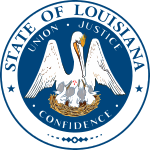Democratic primary
Campaign
Long's campaign promises included spending increases to fund health, education, and other social programs. He made these promises on an extensive tour of the state, stopping in nearly every town to deliver theatrical speeches mocking his opponents. The acerbic Long attacked Morrison with particular enthusiasm, mocking his toupee and fancy suits and calling him "as slick as a peeled onion", out of touch with residents of small towns and rural areas. Long also mocked his unusual first name: "Ole De la Soups is the only man that can talk out of both sides of his mouth, whistle, and strut all at once." In addition to his usual base, Long also won support from corrupt rural sheriffs who were angry at their loss of gambling revenues after Kennon's reforms and Grevemberg's raids.
Despite the reluctance of Morrison's own Crescent City Democratic Association, the New Orleans mayor was overly optimistic at his chances. Morrison had expected the support of Governor Kennon, but did not get it; Morrison had endorsed Kennon's opponent Hale Boggs in the first primary of the 1952 election. Long encouraged false optimism in Morrison's campaign by having his rural supporters write to the New Orleans mayor urging him to run for governor. This false rural support never materialized in the actual election; Morrison was too unfamiliar with the state's rural politics and fought a perception of urban sophistication that did not play well in the country. His emphasis on his record as mayor and his promises of economic development found little resonance with rural voters.
Preaus, running third, had the support of incumbent Governor Kennon.
Grevemberg campaigned on his reputation for integrity, but his gambling crackdown had alienated too many people for him to receive much support.
McLemore ran a segregationist campaign as he had in 1952.
Results
Earl Long won 62 of the state's 64 parishes; only Orleans Parish went to Morrison. The support of local political boss Leander Perez won Plaquemines Parish for Fred Preaus, who lost his own Union Parish. Long was intensely proud of his first-primary victory, exclaiming "Huey never done that!"

Earl Kemp Long was an American politician and the 45th governor of Louisiana, serving three nonconsecutive terms. Long, known as "Uncle Earl", connected with voters through his folksy demeanor and colorful oratory. He departed from other southern politicians of his time by promoting a progressive agenda, expanding school-lunch programs, teacher pay, public-works projects, and minority voting rights.
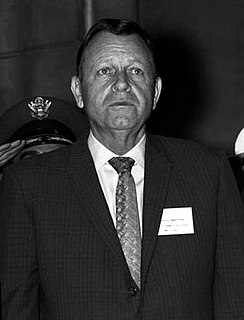
James Houston Davis was an American politician, singer and songwriter of both sacred and popular songs. Davis was elected for two nonconsecutive terms from 1944 to 1948 and from 1960 to 1964 as the governor of his native Louisiana. As Governor, Davis was an opponent of efforts to desegregate Louisiana.

deLesseps Story Morrison, Sr., known as Chep Morrison, was an American attorney and politician, who was the 54th mayor of New Orleans, Louisiana from 1946 to 1961. He then served as an appointee of U.S. President John F. Kennedy as the United States ambassador to the Organization of American States between 1961 and 1963.
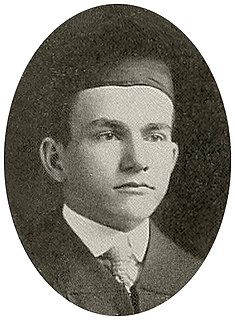
Leander Henry Perez Sr. was the Democratic political boss of Plaquemines and St. Bernard parishes in southeastern Louisiana during the middle third of the 20th century. Officially, he served as a district judge, later as district attorney, and as president of the Plaquemines Parish Commission Council. He was known for enforcing and preserving segregation.

Victor Hugo Schiro, was an American politician who served on the New Orleans City Council and as Mayor from 1961 to 1970.

Samuel Houston Jones was the 46th Governor of Louisiana for the term from 1940 to 1944. He defeated the renowned Earl Kemp Long in the 1940 Democratic runoff primary election. Eight years later, Long then in a reversal of 1940 defeated Jones in the 1948 party primary.

The 1944 Louisiana gubernatorial election was held in two rounds on January 18 and February 29, 1944. Like most Southern states between the Reconstruction Era and the Civil Rights Movement, Louisiana's Republican Party was virtually nonexistent in terms of electoral support. This meant that the two Democratic Party primaries held on these dates were the real contest over who would be governor. The 1944 election saw the reformer ‘anti-Long’ faction retain power for another four years under Jimmie Davis.

The 2003 Louisiana gubernatorial election was held on November 15, 2003 to elect the Governor of Louisiana. Incumbent Republican Governor Mike Foster was not eligible to run for re-election to a third term because of term limits established by the Louisiana Constitution.

The New Orleans mayoral election of 1946 was held on January 22, 1946. It resulted in the defeat of incumbent mayor Robert Maestri and the election of deLesseps Morrison as Mayor of New Orleans.

The 1964 Louisiana gubernatorial election was held on March 3, 1964. Democrat John McKeithen won a highly-competitive primary and dispatched Republican Charlton Lyons in the general election, though Lyons made a historically good showing for a Louisiana Republican up to this point.

The 1960 Louisiana gubernatorial election was held on April 19, 1960.

The New Orleans mayoral election of 1950 was held on January 24, 1950. It resulted in the re-election of deLesseps Morrison to his second term as Mayor of New Orleans.

The 1928 Louisiana gubernatorial election was held on April 17, 1928. Like in most Southern states between the Reconstruction Era and the Civil Rights Movement, Louisiana's Republican Party was virtually nonexistent in terms of electoral support. This meant that the Democratic Party primary held on this date was the real contest over who would be governor.

The 1924 Louisiana gubernatorial election was held in two rounds on January 15 and February 19, 1924. Like most Southern states between the Reconstruction Era and the Civil Rights Movement, Louisiana's Republican Party was virtually nonexistent in terms of electoral support. This meant that the two Democratic Party primaries held on these dates were the real contest over who would be governor. The 1924 election saw Henry L. Fuqua defeat Hewitt Bouanchaud to become Governor of Louisiana, and saw the beginning of the political rise of Huey P. Long, who came in a surprisingly strong third.

The 1940 Louisiana gubernatorial election was held in two rounds on January 16 and February 20, 1940. Like most Southern states between the Reconstruction Era and the Civil Rights Movement, Louisiana's Republican Party was virtually nonexistent in terms of electoral support. This meant that the two Democratic Party primaries held on these dates were the real contest over who would be governor. The election resulted in the narrow defeat of Earl K. Long and the election of Sam H. Jones as governor of Louisiana on a reform platform.
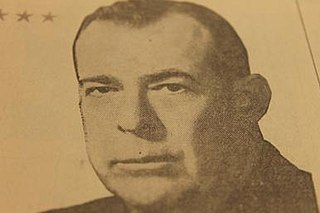
Clarence C. "Taddy" Aycock, a conservative Democrat from Franklin in St. Mary Parish, was the only three-term lieutenant governor in 20th century Louisiana history. He served from 1960 to 1972. Aycock failed in his only bid for governor in the 1971 Democratic primary. Few lieutenant governors in Louisiana have been elected directly to the governorship; former Governor Kathleen Babineaux Blanco of Lafayette, is a prominent exception.

The 1948 Louisiana gubernatorial election was decided by a Democratic primary held in two rounds on January 20 and February 24, 1948, which was tantamount to election. The 1948 election saw the defeat of Louisiana's reformer "anti-Long" faction and the election of Earl Kemp Long to his first full term as governor.
Carlos Gustave Spaht, I, was a Louisiana judge best remembered for having lost the Democratic gubernatorial runoff election in January 1952 to fellow Judge Robert F. Kennon of Minden, the seat of Webster Parish in northwestern Louisiana. Spaht's unsuccessful running mate for lieutenant governor was future Governor John J. McKeithen of Columbia, the seat of Caldwell Parish in north Louisiana. McKeithen lost to then State Senator C.E. "Cap" Barham of Ruston, the seat of Lincoln Parish, also in north Louisiana. At the time, McKeithen was an outgoing member of the Louisiana House of Representatives.

The 1972 United States Senate election in Louisiana was held on November 9, 1972.
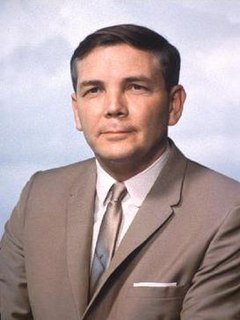
John Julian McKeithen was an American lawyer and politician who served as the 49th governor of Louisiana from 1964 to 1972.

